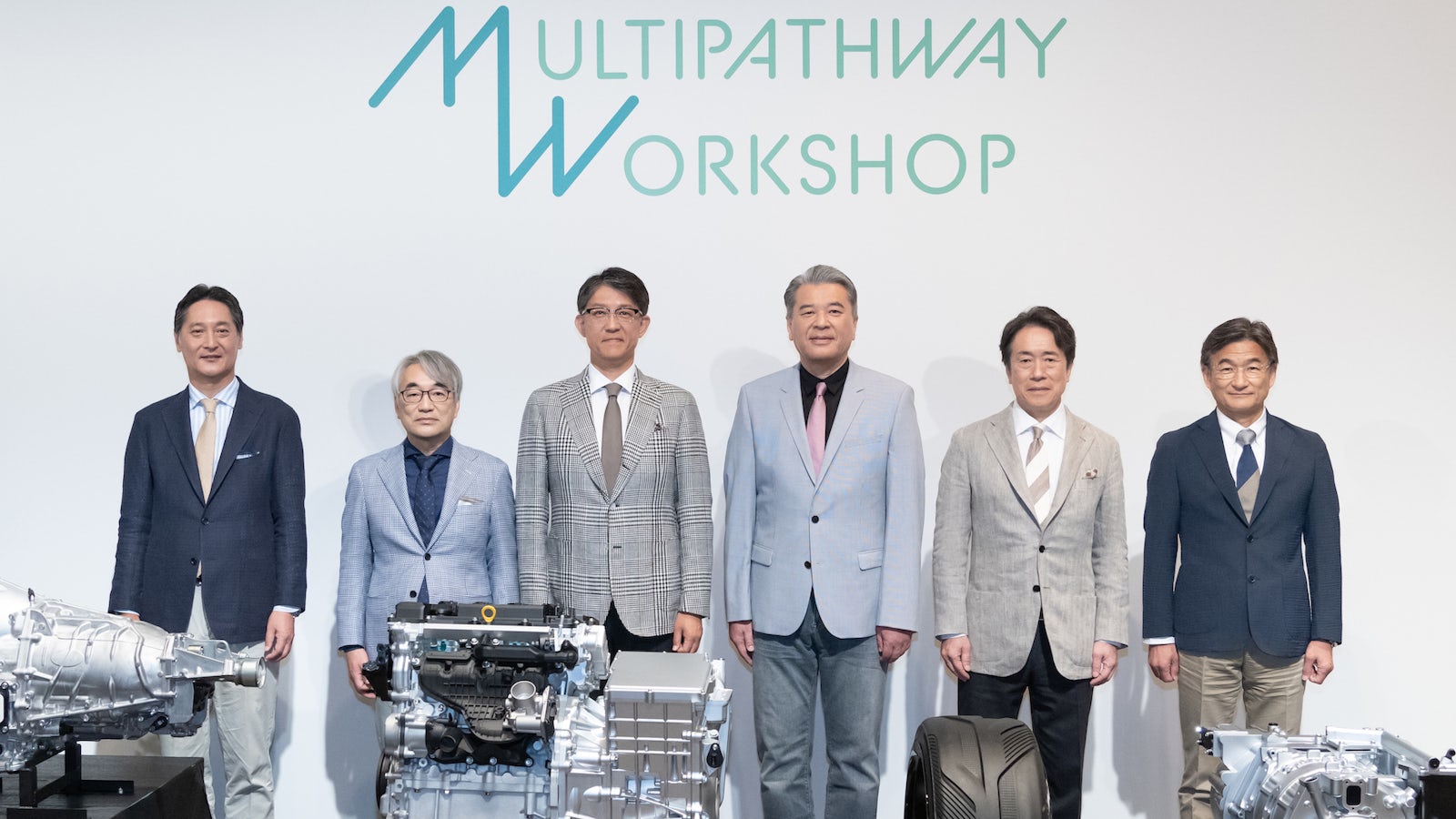Toyota, Subaru and Mazda to collaborate on new EV-fighting combustion engines
May 29, 2024 by Tom Wiltshire

Car changing is a big deal
Still a place for ICE in the EV era – three Japanese brands will collaborate
- New generation of internal combustion engines unveiled
- Toyota, Subaru and Mazda to work together on eco-friendly engines
- Prototype units designed for hybrid and plug-in cars
- Designed to run on eco-friendly biofuels and hydrogen
- Will comply with strict emissions regulations
- But might not sidestep EV sales mandates
Toyota has announced that it will continue to develop internal combustion engines, even with the motoring industry’s shift to electric vehicles.
At a presentation in Tokyo, jointly with fellow Japanese brands Subaru and Mazda, the manufacturing giant said it would offer a new generation of engines tailored to applications in hybrid powertrains, synthetic fuels and even hydrogen power.

The three companies believe this approach is the best step towards decarbonisation, rather than simply moving wholesale towards electric vehicles. Toyota, Subaru and Mazda have rather lagged behind the competition on this front – Toyota’s sole EV offering, the bZ4X, is expensive and has rather a poor range. Subaru offers the bZ4X under its own branding, while Mazda’s MX-30 is more compromised than either with barely 100 miles of range in the real-world and awkward, unconventional packaging.
Instead, Toyota is pinning its hopes on what it calls a ‘multipathway’ strategy – developing EVs but also concentrating on other alternatives, such as hybrids, hydrogen fuel cell cars, synthetic or biofuels and other low-carbon technologies.
“In order to provide our customers with diverse options to achieve carbon neutrality, it is necessary to take on the challenge of evolving engines that are in tune with the energy environment of the future,” commented Koji Sato, president and CEO of Toyota. “The three companies, which share the same aspirations, will refine engine technologies through friendly competition.”
Representatives from Subaru and Mazda echoed Sato’s comments, claiming that both companies would continue to develop their own idiosyncratic engine varieties. In Subaru’s case, that’s the flat or ‘boxer’ engine that all of its cars have been fitted with for decades. For Mazda, that’s the rotary Wankel engine used in some of its most iconic vehicles.

Advantages for the new engines aren’t just carbon neutrality. Toyota claimed that performance would be improved, with ‘highly efficient and powerful’ engines. It also said they’d be physically smaller, allowing for lower bonnet lines to improve aerodynamic performance and further improve efficiency.
The brands’ hope is that continuing to offer combustion engines will contribute to the broader adoption of alternative fuels, such as hydrogen. Toyota’s offered a hydrogen vehicle in its model line-up for many years, but it currently accounts for just 0.03% of the brand’s worldwide sales. Hybrid and plug-in hybrid sales make up 34% of sales. Electric vehicles, currently just 1% of Toyota’s global sales, will need to make up a more significant proportion in the future especially in markets where vehicles with combustion engines are set to be banned. In the UK, that’s set to come into force from 2035.
Looking for an easy way to change your car? Then Carwow is the place to go. You can sell your old car for a great price, and get the best deals on a new one. All through our network of trusted dealers and all from the comfort of your home. Tap the button below to get started today.